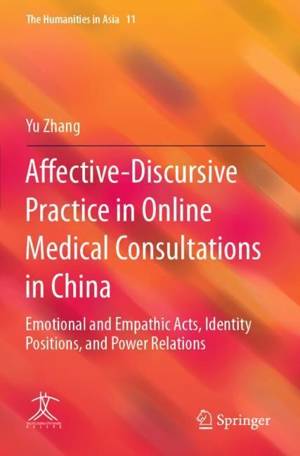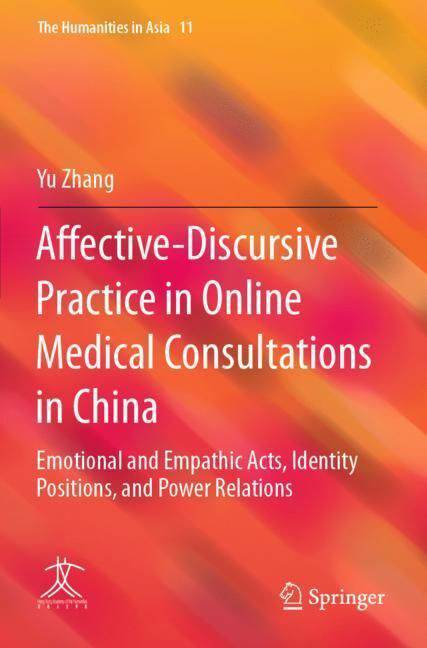
- Retrait gratuit dans votre magasin Club
- 7.000.000 titres dans notre catalogue
- Payer en toute sécurité
- Toujours un magasin près de chez vous
- Retrait gratuit dans votre magasin Club
- 7.000.0000 titres dans notre catalogue
- Payer en toute sécurité
- Toujours un magasin près de chez vous
Affective-Discursive Practice in Online Medical Consultations in China
Emotional and Empathic Acts, Identity Positions, and Power Relations
Yu ZhangDescription
This book provides readers with the latest research on the affective aspect of online interactions between doctors and e-patients in the context of China from a poststructuralist discourse analysis perspective. At the heart of this book is the presentation of four chapters which address (1) indirect negative emotional acts by e-patients and empathic acts by doctors (constituting "affective practice"), (2) the interactional discursive features involved in the affective practice, (3) discursive positions of e-patients and doctors within the affective practice context, and (4) power relations that are reflected in the positionings. This book sheds light on the importance of examining the affective facet of medical consultation, when it comes to identifying non-traditional positions and power relations in doctor-patient communication. It also provides the implication that e-healthcare platforms, especially those with an e-commercialized model for healthcare services, have potential to produce a type of neo-liberal discourse-the e-commercialized medical consultation discourse-in which patients and caregivers, who are acknowledged as the less powerful group in the traditional healthcare activities, are empowered and privileged.
Spécifications
Parties prenantes
- Auteur(s) :
- Editeur:
Contenu
- Nombre de pages :
- 155
- Langue:
- Anglais
- Collection :
- Tome:
- n° 11
Caractéristiques
- EAN:
- 9789811926457
- Date de parution :
- 20-08-23
- Format:
- Livre broché
- Format numérique:
- Trade paperback (VS)
- Dimensions :
- 156 mm x 234 mm
- Poids :
- 244 g







